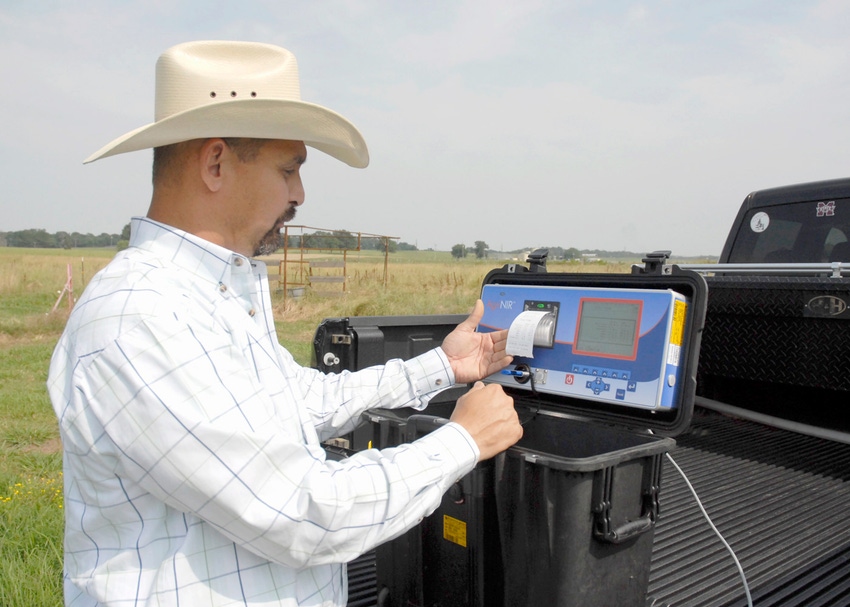July 19, 2012

Mississippi State University has the South’s first portable forage tester that can give hay and cattle producers immediate decision-making information and enable them to improve their profit margins.
Rocky Lemus, assistant Extension and research professor in MSU’s Department of Plant and Soil Sciences, said the small machine has big potential.
“We can use this year-round, testing grass in pastures and hay in fields during the growing season or testing hay in the barn during winter,” Lemus said.
Lemus said the near infrared reflectance spectroscopy, or NIR, machine tests moisture, fibers and crude protein. He was able to purchase the tester with a $30,000 grant from the Mississippi Agricultural and Forestry Experiment Station, the MSU Extension Service and the Department of Plant and Soil Sciences.
He is calibrating it for Mississippi forage crops including annual ryegrass, small grains (wheat, rye, oats), alfalfa, annual and perennial clovers, bahiagrass, bermudagrass, summer annuals (crabgrass, teff grass and forage sorghums) and tall fescue.
“Right now, we are not traveling the state just to use this equipment, but we use the tester when we go on typical farm visits or forage-related field days to address various problems, pasture evaluations, grazing management decisions, weed control and fertility issues,” he said.
The machine’s analyses can help growers know the best time to harvest hay. Lemus said growers often are tempted to delay cutting, which may help quantity, but hurt quality.
“Lost quality before harvest means more money spent on feed supplements to cattle later,” said Lemus, a forage and grazing systems specialist. “We can also test hay that is already harvested and know how much, if any, supplementation is needed.”
Daniel Rivera is an assistant Extension and research professor who specializes in cattle nutrition in South Mississippi. He said the immediate results from this forage tester give it an advantage over the normal method.
“Typically, we send forage samples to university labs, and the whole process can take as long as two weeks under ideal conditions. A lot can happen in two weeks in a state like Mississippi, where we can go from lush to almost drought-like conditions in no time at all,” he said.
Rivera said the strength of this portable tester lies in the benefits for analyzing pastures for better management of cattle nutrition.
“When analyzing hay, growers have a little flexibility in terms of time, but with pastures, they need to know the nutritional quality of the grass as soon as possible,” he said. “Producers may choose to move cattle to different pastures or give supplements based on the animals’ nutritional needs.”
Rivera said producers can save money by determining supplement needs without overfeeding.
“Those savings can add up fast,” he said.
You May Also Like




